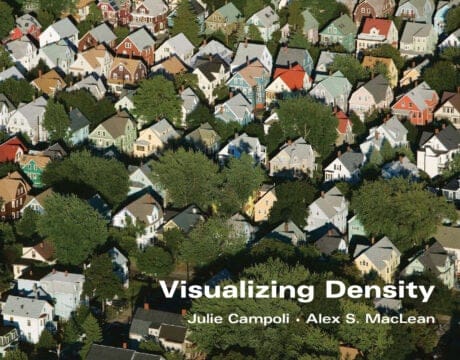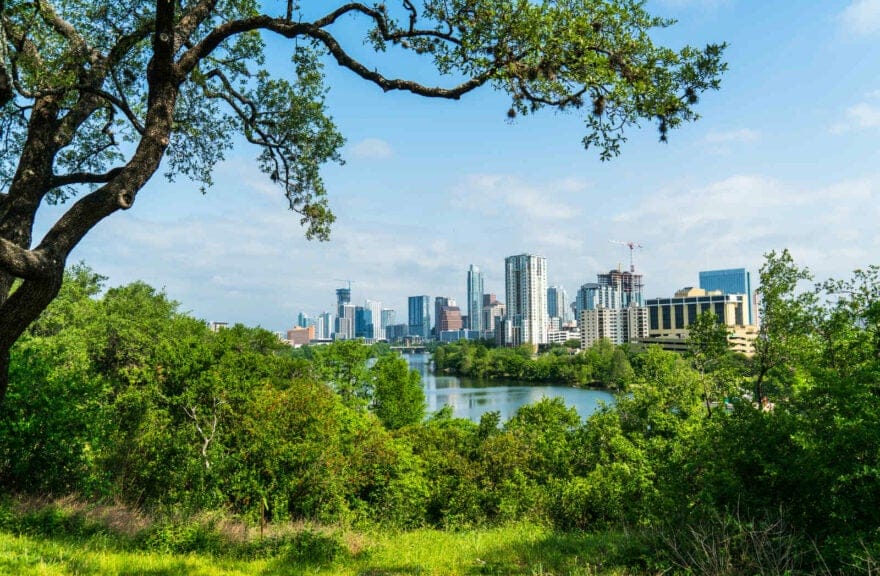Climate Resilient Urban Form
Current land use and planning policies, and the institutions responsible for developing and implementing them, fail to adequately consider climate impacts and the need for rapid and deep decarbonization. The resulting patterns of urbanization not only contribute to growing carbon emissions but often place people in harm’s way and degrade valuable natural habitat. At the same time, urban areas and local jurisdictions are responsible for implementing many climate solutions, and some cities have already emerged as leaders. By documenting best practices, disseminating policy recommendations, and building local capacity, we aim to elevate the role of urban planning and policy to foster decarbonized, climate-resilient places.
Not all cities are at the same stage of urbanization, and different land policy levers and strategies are needed for different typologies of cities. In emerging and rapidly urbanizing places, often smaller and intermediary cities—including in Africa, where 80% of the buildings that will exist in 2050 have yet to be built—our strategy is to “build right the first time,” avoid expanding poorly planned and underserved informal settlements, and seize the opportunity to create more equitable, climate-resilient communities. Compact, context-sensitive urban form also helps protect valuable natural or agricultural peri-urban areas and critical ecosystems—a complement to the institute’s land conservation efforts.
In more established cities or neighborhoods with existing spatial structure and infrastructure systems, the strategies may be different. Opportunities must be created to upgrade infrastructure and repurpose underutilized and vacant assets in ways that reverse fossil-fuel dependency and patterns of spatial inequity. Investments and mechanisms including green building retrofits, infill development, renewable energy deployment, bus rapid transit (BRT), and parking policy can not only reduce GHGs, but also improve air quality and reduce road fatalities.

Visualizing Density
This best-selling and richly illustrated book by landscape architect Julie Campoli and aerial photographer Alex S. MacLean helps planners, designers, public officials, and citizens better understand how residential density can help save energy, money, and the environment.

Regulating Urban Sustainability
This paper sets out to answer a basic question—how do urban land policies shape sprawl, urban transportation, and greenhouse gas emissions? To assess how various elements affect urban sustainability, we combine high-quality, globally available GIS data on urban footprints, population density, transportation patterns, and carbon emissions with surveys of regulatory processes from the World Bank’s Doing Business project for over 400 cities in nearly 40 countries.
Read the PaperThe Case for Climate-Informed Zoning
This report examines the economic and social impact of resilience zoning in Norfolk, Virginia, which offers a cutting-edge example of climate-informed policy through the adoption of two land use plans—planNorfolk2030 to guide short-term development and Vision 2100 for long-term development. Using quantitative analysis, the Smart Growth America team explores the fiscal implications on Norfolk’s annual budget and property values.

UCLG Africa Pilot Program
On May 17 and 18, 2023, United Cities and Local Governments of Africa (UCLG Africa), through its African Local Government Academy (ALGA), in partnership with the Sahel and West Africa Club of OECD (SWAC/OECD), and the Lincoln Institute of Land Policy, organized a pilot training program on “Using Data to Diagnose Cities’ Resilience and Inform Land-Based Policy and Financing,” on the sidelines of the CIB Annual Meeting.
Learn More


